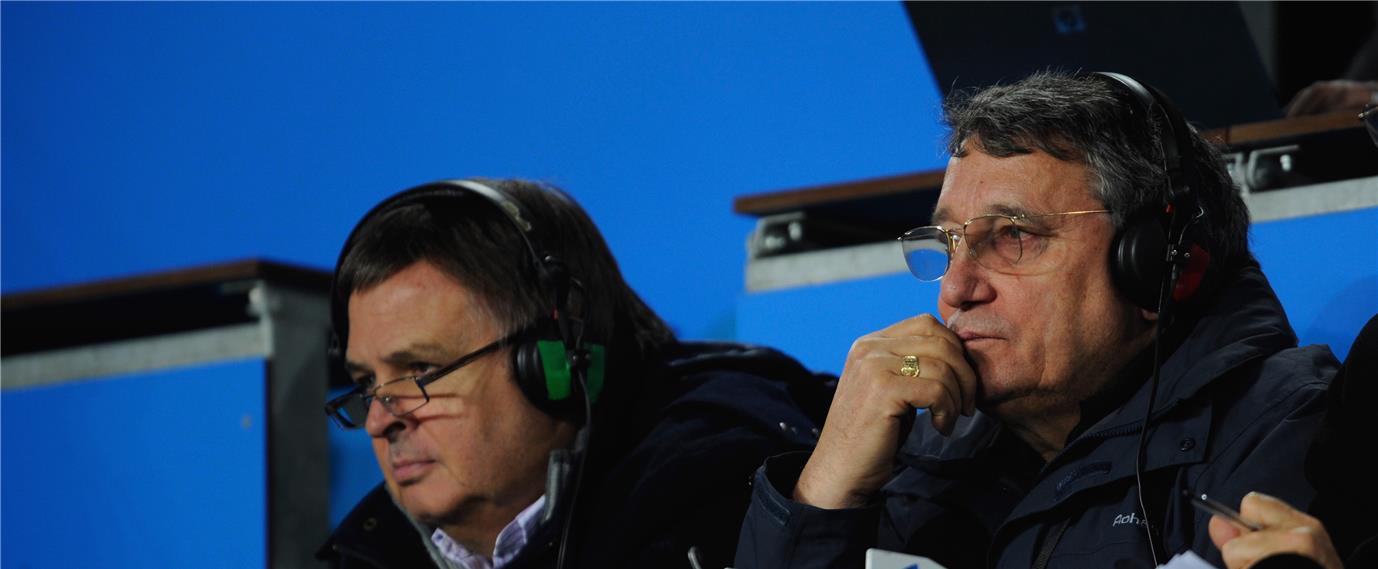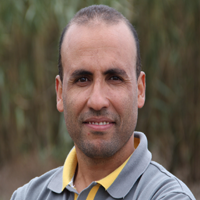انتهت الدورة الحادية والعشرون من كأس العالم، وخلفت وراءها مئات الساعات من الجلسات التلفزيونية بمختلف اللغات، وآلاف الكلمات من مقالات الأخبار والرأي على صفحات الجرائد والمجلات وباقي وسائل الإعلام والتواصل، مؤكدة مرة أخرى على صعوبة تجاوز منتج الصحافة الرياضية لفقرات القراءة والتحليل وعدم الاكتفاء ببث الخبر فقط، وعلى قيمة المنتوج الرياضي على المستوى الاقتصادي في الترويج السياحي للبلدان المحتضنة، واستثمار الخطاب الإعلامي في الدعاية السياسية وتوجيه الرأي العام.
وتستثمر وسائل الإعلام المتخصصة في المضمون الرياضي، خاصة السمعية البصرية، الفضاءات الرقمية بمواقع التواصل الاجتماعي لبث وإعادة نشر وترويج برامجها التي تسبق أو تلي اللقاءات والتظاهرات الرياضية، خصوصا رياضة كرة القدم، باعتبارها الأكثر شعبية في المعمورة، ناهيك عن أبعادها النفسية والاجتماعية، وحتى السياسية في الأوطان العربية، بحكم الحضور الراسخ والانتشار الموازي لثقافة الجلسات والسمر في السلوك اليومي للإنسان العربي، مما يجعل مشاهدة مباريات الكرة المستديرة تتحول إلى مناسبة للنشاط التجاري، سواء عبر تطوير فضاءات تلك "الفرجة"، أو عن طريق الاستثمار في الإعلام الرياضي، ونخص بالذكر ما توفره مداخيل شراء القنوات التلفزيونية لحقوق البث التلفزيوني للبطولات الأكثر مشاهدة من طرف الجمهور.
فهل المحلل الرياضي ضرورة مهنية يفرضها حق المتلقي في وجهات نظر مختلفة؟ وما مدى دقة مصطلح "المحلل" في السياق الرياضي البعيد عن حقول المعرفة والفكر، والمبني على لعبة يرافقها الحظ في أغلب أوقاتها؟ وما درجة صمود ما يصرح به نجوم التحليل بالشاشات التلفزيونية أمام المتغيرات التي تعرفها لعبة كرة مملوءة بالريح كما يقال في التداول الشعبي؟ ألا تشكل الصورة الذهنية المشكلة حول المستوى الثقافي والفكري لممارسي كرة القدم، عائقا أمام قبول ما يصرحون به وبالأحرى إخضاعه للمنطق؟ (إن وجد طبعا). لماذا تفضل القنوات التلفزيونية شهرة اللاعبين السابقين العابرين للحدود على الأطر الرياضية الوطنية المغمورة؟ ما هي مساحة الرياضة في مجموع البرمجة التلفزيونية بالقنوات العربية؟ وما تفسير ذلك؟
لا أدعي في هذه المقالة الإجابة عن كل تلك أسئلة، لكن أرى أنها ضرورية لربط الرياضة -باعتبارها لعبة وجدت للترفيه أولا- بالتشكيل الاجتماعي والثقافي للبلدان العربية ككل من جهة، وبالعمل الصحفي من جهة ثانية، مستدعيا رأي الباحث المغربي في الشأن الرياضي الدكتور منصف اليازغي، والصحفي أحمد فال، إضافة إلى "أوعنا بلعيد"، وهو نموذج للمحللين على مواقع التواصل الاجتماعي.
التحليل الرياضي.. عندما يسود الاستثناء
من الجوانب الرئيسية التي يعيب فيها رافضو التحليل الرياضي اعتماده على الصدفة والحظ إلى درجة كبيرة تشكل قاعدة قراءة المباريات الرياضية، خاصة الجماعية منها، إذ يصعب الاتفاق حول قواعد ثابتة يمكن الاستناد عليها في تقديم تخمينات أو تفسيرات لما ستنتهي إليه الرياضة الأولى عبر العالم، من حيث الانتشار والشعبية، مما يجعل تحليلات التقنيين والخبراء في هذا المجال تتعرض لاختبار دائم ومتواصل، إلى درجة يستحيل معها التمييز بين حدود القاعدة والاستثناء. فإذا كان التكرار، عادة، قرينُ القاعدة والإقرار، فإنه في كرة القدم لا تصمد هذه المعادلة، بحكم تعلق كل القراءات والتحليلات الرياضية بمدى تحققها على ميدان التباري، إذ يمكن أن تنقلب نتيجة مباراة ما في الثواني الأخيرة من عمرها، فتفقد معها كل القراءات التي وضعت مصداقيتها، سواء قبل صافرة البداية أو بعد انتهاء وقت اللعبة.
ويعلل ذلك منصف اليازغي، الباحث المغربي في السياسات الرياضية، بغياب قواعد ثابتة للتحليل، خاصة لدى المحللين العرب، الذين "يسقطون أحيانا في ابتذال حقيقي وهم يقولون الشيء ونقيضه، وأحيانا أخرى يصعب عليك الوقوف على منطق ثابت في تحليلاتهم، إذ نجد أنفسنا في العديد من الوقائع أمام ازدواجية فـي الخطاب والأفكار الموظفة في التحليل".
ويرجع اليازغي سبب هذا التقلب لعدم وجود ثباتٍ في إيقاعِ دقائق المباراة الواحدة، مستشهدا بمباراة المغرب وإيران في كأس العالم بروسيا.. "فهل كان أكبر محلل يعتقد أن اللاعب "بوحدوز" سيسجل ضد مرماه في اللحظات الأخيرة؟ وهو الذي لم يكن أحد يتوقع حتى مشاركته في المباراة أصلا". يتساءل اليازغي.
وبخلاف كرة القدم، تحضر الدقة في توقع سيناريو ونتيجة مسابقات رياضية أخرى، عندما تكون التنبؤات مبنية على معطيات ثابتة نسبيا، وهو ما تبناه اليازغي عند استحضاره لسباقات ألعاب القوى مثلا، إذ "لا يمكن أن تكون فيها التوقعات خارجة عن الإجماع"، ذلك "أن عداء سجل أفضل توقيت له طيلة السنة في حدود (3 دقائق و32 ثانية)، لا يمكن أن نتوقع منه أن يحطم الرقم القياسي المحدد في (3 دقائق و26 ثانية)، وبالتالي قد نصل إلى حد توقع الفائزين الثلاثة في السباق، مع الاحتفاظ بهامش خطأ لا يتعدى (%5) متروك للحظ أو الصدفة: (تعثر العداء المرشح، غيابه في آخر لحظة ...)". يضيف محدثنا دائما.
المحلل النجـم
في المسرح والسينما وباقي فنون الأداء، نادرا ما نجد ممثلا وناقدا، أو مخرجا سينمائيا وباحثا في الآن ذاته، لأنه في هـذه الحالة، المبدع والمنتج الدرامي لا يعتـزلان حرفتهما في سن واحدة، بل يواصل كل واحد مشواره رغم تقدمه في السن، وتُرْسَمُ له ملامح شخصياته في اللعب الدرامي حسب الجو النفسي للدور ككل. لكن بالنسبة للرياضة عموما، وكرة القدم بشكل خاص، فإن محترفيها يتوقفون في الغـالب عن ممارسة "مهنتهم" في عقدهم الرابع، نظرا لطبيعة الممارسة التي تفرض حضورا بدنيا بالدرجة الأولى، ثم ينتقلون للجلوس على كرسي الاحتياط، بالمعنى الكروي، لمزاولـة مهنة التـدريب. وبالموازاة مع ذلك، هناك من يقوم بدور المحلل الرياضي بوسائل الإعلام، سـواء المتخصصة في الرياضة أو الشاملة. ولهذا، يصعب على المحترف الرياضي الجمع بين الممارسة اليومية والتعليق على الأحداث الرياضية في "استوديوهات" القنوات والإذاعات. وفي كلتا الحالتين، أي التدريب والتعليق، نجد أن المؤسسات التي تتعاقد معهم تركز على النجوم السابقين منهم، إذ لا تقبل أسماء من لا شهرة له، حتى وإن كان ناجحا كرويا، نظرا لوجود هاجس المنافسة بين وسائل الإعلام لجذب الجمهور والرفع من نسبة المشاهدة، مما يجعل البرامج الرياضية تنافس البرامج الفنية والترفيهية في إحصائيات المتابعة من طرف الجمهور، ويؤكد ذلك العدد الكبير لمقاطع الفيديو التي تَبُثُّ ملخصات المباريات وتصريحات ضيوف البرامج السابقة أو التالية للمقابلات. وكثيرا ما خلفت تصريحات وآراء رياضيين في برامج تلفزيونية أو إذاعية ردودا على وسائط التواصل الاجتماعي، سواء داخل القطر الواحد، أو كانت لها تداعيات على المستوى العربي.
يقول منصف اليازغي عن مسألة الاستعانة بنجوم الرياضة في التحليل الكروي: "قد نتفهم رغبة وسائل الإعلام التلفزيونية الوطنية والدولية في استقطاب مشاهدين من خلال الاستعانة بنجوم كرة القدم السابقين في "استوديوهات" برامجهم الرياضية". لكنه يرى أن المسألة يحفها إشكالين مترابطين ومتكاملين، أحدهما سبب والثاني نتيجة، فالإشكال السبب، وهو الذي يعاني منه العديد من اللاعبين الدوليين السابقين، إذ "مقابل إبداعاتهم على رقعة الملعب، فإنهم يفتقدون لأسلوب وخطاب إعلامي قادر على إقناع المشاهد، لأن أغلبهم لا تكوين أكاديمي له بعد الاعتزال"، وبالتالي، فالإشكال النتيجة، حسب اليازغي دائما، هي أننا "نجد أنفسنا أمام نجم كروي يبخس رصيده أمام جمهور كان يكنُّ له كل التقدير. مع التأكيد على وجود استثناءات تجعل لاعبا نجما قادرا على التجاوب السريع مع متطلبات التعليق التلفزيوني، بالنظر إلى اكتسابه لعدة مهارات من قبيل الاطلاع والتعرف على المستجدات، ومتابعة طريقة تحليل المعلقين الأجانب".
وبناء على ذلك، يرى مؤلف كتاب "السياسات الرياضية بالمغرب" أن الاستعانة بنجوم يغيب عنهم أمر أساسي، وهو التكوين الإعلامي يضعنا أمام تحليلات غير مؤسسة على معطيات دقيقة، لأن المشاهد أصبح متمكنا وقادرا على تصيد أخطاء وسائل الإعلام، إذ من السهل أن نجد ضيفا رياضيا محط سخرية في وسائل التواصل الاجتماعي، الأمر الذي يسيء للقناة التلفزيونية التي لم تضع أو لم تحترم معايير توظيف مستشارين رياضيين، والحصيلة نشر ثقافة رياضية غير سليمة".
التحليل الرياضي على صفحات التواصل الاجتماعي
لم يعد خافيا أن جمهور كرة القدم، في ظل الاستثمار الاقتصادي في الإعلام الرياضي، بات مُلِمّا بالثقافة الرياضية وبقواعد اللعب، ومن ثم أصبحت له القدرة على تحليلها وقراءتها انطلاقا من تكرار مشاهدتها وتتبع حلقات البرامج الرياضية في وسائل الإعلام المختلفة، دون أن يكلف نفسه عناء الذهاب للملاعب كما كان الشأن في السابق عندما كانت لعبة هواية في جل الأقطار العربية، على الأقل، وكانت تتأسس فيها الفرق على أساس جغرافي وسياسي يعكس هوية مؤسسيه، قبل وصول الاحتراف وانتقال النوادي إلى شركات. ويمكن العودة هنا إلى مجموعة من الأمثلة التاريخية الدالة على ذلك، كتسمية الفرق بأسماء ذات حمولة وطنية وقومية وسياسية كـ(الوداد، الكفاح، الجيش.. إلخ)، إضافة إلى الشروط التي كانت توضع أمام المواهب الراغبة في الانضمام إليها (نموذج فريق بيلباو الإسباني).
أحمد فال، صحفي مغربي، ونموذج للتدوين والتعليق الرياضي على حسابه بالفيسبوك، حيث يتابع أخبار ومستجدات كرة القدم العالمية، ويخصص الحيز الأكبر لتشجيع فريقه المفضل بالبطولة الإسبانية، ويسخر في تدويناته من مشجعي "الخصوم"، بالمعنى الرياضي، ويشحذ كل الوسائط المتعددة لتحقيق ذلك، ويُحَوِّل كل أخبار الفريق إلى انتصارات رياضية وحنكة إدارية. لأن التحليل الرياضي في وسائل التواصل الاجتماعي، حسب تصريحه للمجلة، له خصائصه التي تميزه"، فهو، في نظره، "يختلف عن وسائل الإعلام التقليدية بآنيته، فخلال مباراة لكرة القدم، مثلا، تجد عشرات التدوينات حول مباراة ما تحلل طريقة لعب المدرب، وبعض الأخطاء الفردية للاعبين، وقد يصل الأمر أحيانا إلى تقديم قراءات تكتيكية للمباريات، وهذا ما ينفي عنه مسألة تقليد وتكرار ما تقوله الوسيلة الإعلامية التقليدية".
لقد بات اليوم التوجه نحو التحليل الرياضي في وسائل التواصل الاجتماعي، وفق "فال" دائما، "يأخذ أشكالا تتجاوز الهواية، إذ أضحت هناك صفحات متخصصة ولها متابعون بالآلاف، وتقدم تحليلات لها مصداقيتها، وتحظى باهتمام المتابعين". وهذا يؤكد بشكل ملموس أن "للتحليل الرياضي على مواقع التواصل الاجتماعي جمهوره، بل إن كثيرا من المحللين المعروفين في قنوات رياضية عالمية أصبحوا يراهنون على مواقع إلكترونية لنشر بعض تحليلاتهم وخلق جمهور على هذه المنصات التي تضاف للدعامات التقليدية".. يقول الصحافي بقناة "ميدي 1 تيفي".
والنموذج الثاني الذي نعرضه هنا، في سياق الحديث عن تحليل كرة القدم من طرف مُبْحِرِي الفايسبوك، هو "بلعيد أوعنا" من المغرب أيضا، وهو واحد من مئات النشطاء ورواد العالم الافتراضي الذين استطاعوا أن يواكبوا باستمرار وبشكل غزير المستجدات والأخبار في عالم كرة القدم وتحويل شغفهم هذا إلى آراء وانطباعات على حسابه الشخصي في الفايسبوك أو في باقي صفحات التواصل الاجتماعي الممتدة عبر الشبكة العنكبوتية، لدرجة أن له أسلوبا خاصا يميزه عن غيره، إذ يمزج فيه بين الخبر، والتعليق، والنكتة، وذلك بصيغ مختلفة لمضمون التدوين؛ متحررا من كل القوالب الصحفية الصارمة، مما يجعل صفحته فضاء لتجمع "المشجع" و"الخصم". كما أنه يستثمر سحنته السمراء في تقمص صفة المواطن الإفريقي من جنوب الصحراء، لإضفاء طابع "الموضوعية" على ما يخطُّ من أسطر في عالمه الافتراضي، وهي عملية يمكن تشبيهها بدور السارد فـي الأدب، الذي يضعه الكاتب في الأنماط السردية لينوب عنه في عملية الحكي، إذ كثيرا ما نجده يحاور ذاته ويخاطب غيره من أصدقائه الافتراضيين من منطلق أنه مواطن مـن دولة "مالي الشقيقة".
وأخيرا، أعتقد أن تحميل التحليل الرياضي عبء الصرامة المنهجية التي تقابل بها باقي المجالات الإبداعية، كالفنون مثلا، يجعل مقاربتنا له فيها نوع من "التعسف" الفكري، وإقحام لآليات هي صلب التأسيس النظري، لأن الرياضة، بالمقام الأول، مجال إبداعي له خصوصيته التي تميزه، فالتدريب الرياضي ليس هو "البـروفا" في المسرح، ومدارس كرة القدم، رغم جنسياتها، لا تختلف كثيرا عن بعضها، فالكل يبحث عن نتيجة واحدة وهي الانتصار، أما الفن فليس من أولوياته الجمهور، بل يسعى إلى تغيير العالم بأدوات جمالية وليس إلى إمتاعه فقط، عكس الرياضة التي إن هجرها الجمهور تتحول إلى تدريب.







































